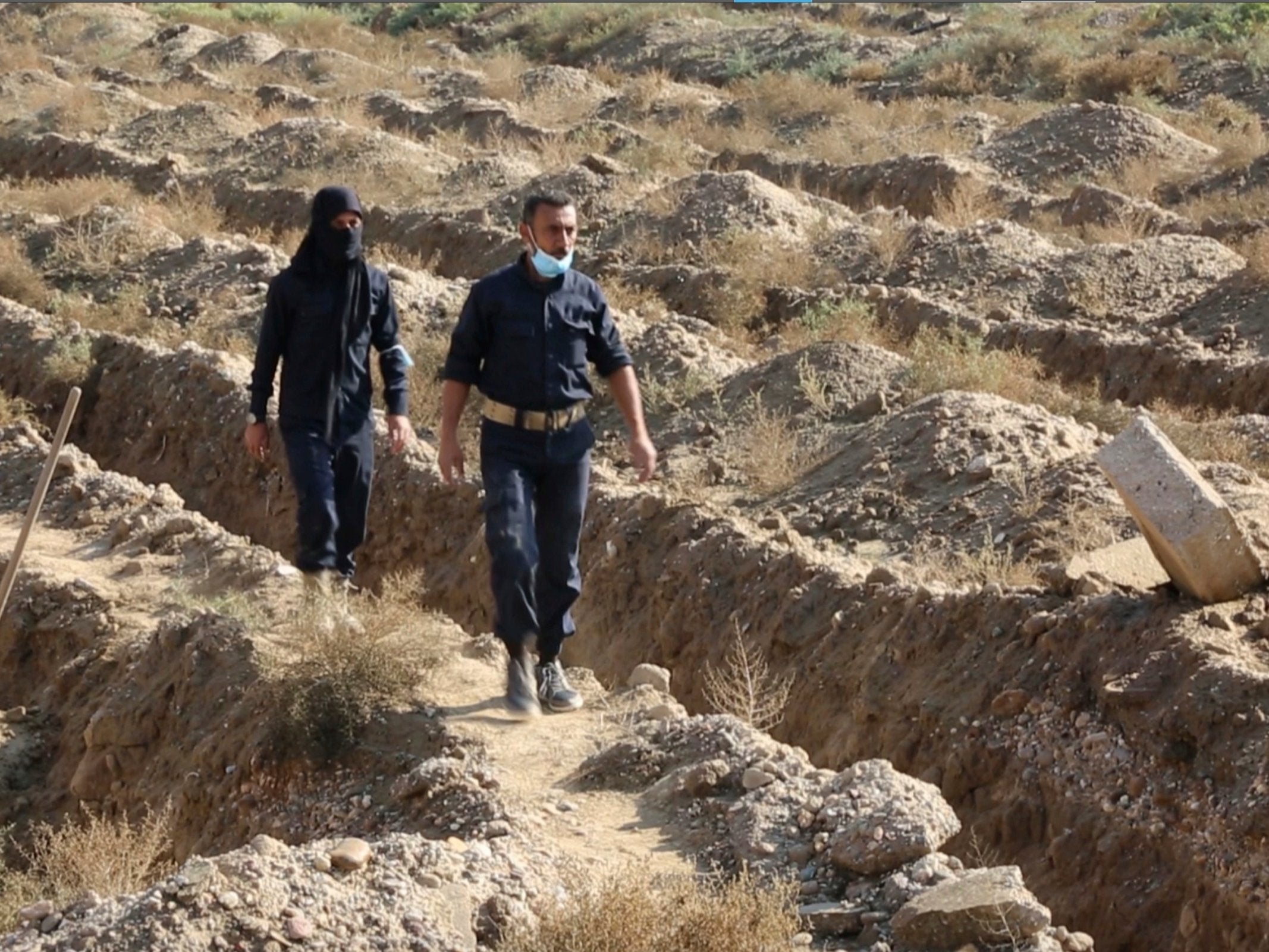Hundreds of bodies exhumed from Isis mass grave in Syria
Largest grave discovered so far believed to contain around 1,500 bodies

Your support helps us to tell the story
From reproductive rights to climate change to Big Tech, The Independent is on the ground when the story is developing. Whether it's investigating the financials of Elon Musk's pro-Trump PAC or producing our latest documentary, 'The A Word', which shines a light on the American women fighting for reproductive rights, we know how important it is to parse out the facts from the messaging.
At such a critical moment in US history, we need reporters on the ground. Your donation allows us to keep sending journalists to speak to both sides of the story.
The Independent is trusted by Americans across the entire political spectrum. And unlike many other quality news outlets, we choose not to lock Americans out of our reporting and analysis with paywalls. We believe quality journalism should be available to everyone, paid for by those who can afford it.
Your support makes all the difference.Hundreds of bodies have been exhumed from one of the largest mass graves near the Syrian city of Raqqa - once the capital of Isis‘s self-declared caliphate.
Concerns about the preservation of bodies and evidence for possible war crimes trials, have led local groups and first responders to work around the clock to exhume the bodies.
“We’re in a race against time,” said Sara Kayyali, of Human Rights Watch. ”These bodies are decomposing at an exponential rate.”
A devastating US-backed air and ground offensive drove Isis from Raqqa more than a year ago, but rescuers and recovery teams continue to locate mass graves in and around the city.
At least nine graves have been found in and around the city.
The bodies have been recovered are a mix of victims of US-led coalition airstrikes, Isis fighters and civilians.
The Panorama mass grave, named after the neighbourhood where it was found, is one of the largest of nine discovered so far. It is believed to contain around 1,500 bodies.
Hammoud al-Shawakh, a local official involved in the work, said 516 bodies believed to be of Isis fighters and civilians have been exhumed.
The work is pain-staking and the task is huge.
A team of Raqqa-based first responders and a forensic doctor carefully shovel dirt to search for the bodies, which are believed to have been buried there in the last days of the four-month campaign to liberate Raqqa.
Abdul Raouf al-Ahmad, the deputy forensic doctor, said local teams start work at 8am and work for more than seven hours straight each day digging through neatly formed trenches in the grave.
“After we extract the bodies from this grave... we document whether it belongs to a fighter, child, baby, an adolescent or woman or an ordinary person,” he said. ”We document clothing, ornaments, height, type of injury, cause of death and how it was covered, what the person was wearing, with what it was wrapped and its position in the grave.”
International human rights groups say they are concerned local groups are not getting the support they need in terms of forensic expertise and human resources.
“If these bodies are not preserved in the correct way, in the way that’s been established, then it does mean that much of this evidence might be lost when we’re seeking accountability for crimes committed either in the context of the battle or before it,” Ms Kayyali said.
Additional reporting by Associated Press
Join our commenting forum
Join thought-provoking conversations, follow other Independent readers and see their replies
Comments